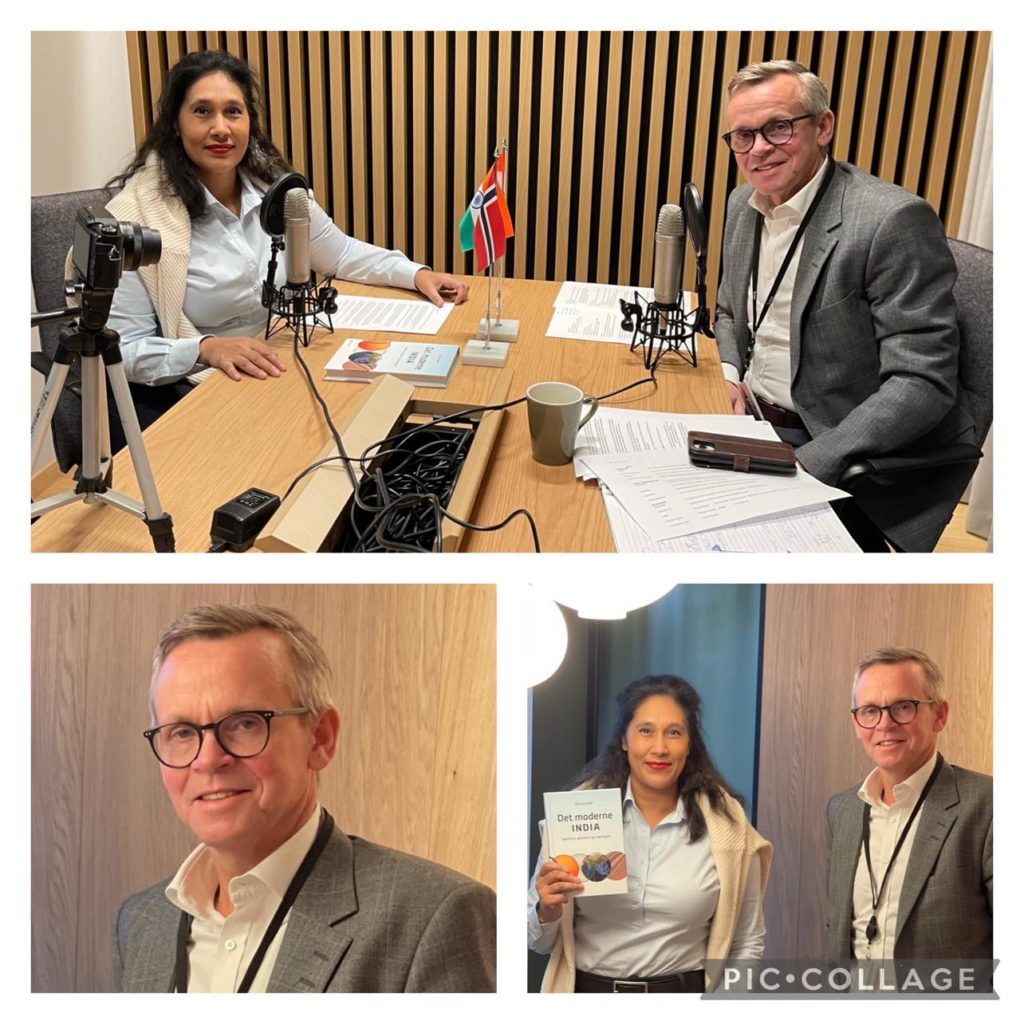Businesses today are expected to have an extra layer of ethics and moral duty towards the society.
ESG is gaining traction as an important strategy for long-term value creation of businesses all over the world. The COVID-19 pandemic has reinforced the importance of Environmental Social Governance (ESG) framework as a key to long term business resialiace.
In 2013, India became the first country to mandate corporate social responsibility with the Companies Act of 2013. 9 years down the road. How does India view ESG?
In this podcast episode we invited EVP & CEO for Orkla Foods: Atle Vidar Nagel-Johansen.

Atle has worked 25+ years in various leadership positions in the Orkla Group; - in finance, marketing and general management. He served on the Executive Management Board of Orkla as EVP since 2012. In January 2021, Atle took on the responsibility as CEO for the merged Foods business area.
We asked him the following questions:
Two weeks ago, we received news that Posten had chosen Infosys, an Indian multinational IT consulting company, as its supplier. We invited Erik Berntzen, CIO of Posten for a live c-suite conversation.
Outsourcing has become one of the most effective tried-and-tested models for profitable business operations. To outsource is to move a business function/service/process to an external supplier. The benefits of outsourcing can be substantial - from cost savings and efficiency gains, to greater competitive advantage. Increasingly more Norwegian companies are choosing to outsource services abroad, especially to India.
We invited Arne Erik Berntzen to speak more about it and asked him the following questions:
One of Norway's leading experts on China, Knut Sørlie, joined us for this podcast episode. Listen to the episode and hear what he and Rina Sunder have to share when it comes to the questions:
2020 har vært et markant vanskelig år for de to landene. Den pågående Himalaya-grensekonflikten har ført til bilaterale krise. India har begrenset kinesiske investeringer i India og utestengt hundrevis av kinesiske mobilapplikasjoner som zoom og tiktok. India er fortsatt avhengig av kinesiske varer, men trapper veldig opp At manirbhar Bharat Abhiyaan or Self-reliant India campaign ble lansert i fjor. Dette betyr at landenes handels- og investeringsforbindelser kanskje aldri blir de samme.
India pleide å operere med 5-årsplaner. Men planleggingskommisjonne ble oppløst i 2014. Dette er noe Modi offetnliggjore i sin tale på Indias nasjonaldag i 2014. Etter oppløsingen er det ikke laget flere formelle planer for økonomien, men det ble laget en fem års forsvarsplan. I lang tid hadde det vært en oppfattelese at sentral planlegging ikke fungerer i et så mangfoldig og stort land som India. 29 delstater og 7 unionsterritorier. Planleggingskommisjonen som ble erstattet av NITI Aayog. Det er viktig å merke seg at dokumentene til NITI Aayog ikke har noen økonomisk rolle. De er bare retningslinjer for regjeringen.
India hoppet til 63. posisjon i Verdensbankens rapport Ease of Doing Business 2020. I 2019-rapporten hadde India forbedret sin rangering på seks av de ti parametrene knyttet til å starte og drive forretning i et land. I 2010 til sammenligning var India på 133. plass.
Begrepet Atmanirbhar Bharat har blitt brukt i forhold til å gjøre India "til en større og viktigere del av den globale økonomien", med mål om å føre en politikk som er
Andre temaer som ble snakket om i denne podcasten er:
In this episode Wayne Cheong and Rina Sunder are discussing
| We invited Ole Jacob Sending to talk on What does the UNSC have to do with business? What business does business have in the UNSC? These are complex questions that many people might not have been able to answer, or they would shy away from answering. However, Mr Sending was spot on with the questions and answered them very pricesly. Ole Jacob Sending is Director of Research at the Norwegian Institute of International Affairs (NUPI) and an adjunct researcher at the Chr. Michelsen Institute (CMI). Sending holds a PhD (Dr. Polit.) from the University of Bergen, titled: “How does knowledge matter?”. His work is mainly focused on the role of international organizations in crisis management. He has previously worked as Senior Adviser in the Norwegian Ministry of Foreign Affairs (2006-2008), and visiting scholar at UC Berkeley (2008-2009) and Stanford University (2002).His work has appeared, inter alia, in the European Journal of International Relations, International Studies Quarterly, and Millennium. His most recent book Governing the Global Polity (with Iver B. Neumann), Michigan University Press, won the International Studies Association Award for Best Book in international political sociology in 2012. He is currently working on a book manuscript under contract, also with Michigan University Press, entitled The Authority of Expertise in Global Governance . With Simon Reid-Henry, he is managing a HUMPOL funded project on “Armed Violence in Urban Settings”. See his answers below: |
Bredo Erichsen (MD og Managing Director, Statkraft India) og Navreet Kaur diskuterer hvordan det er å være en norsk leder i India, og hans erfaringer med indisk versus norsk arbeidskultur. Lytt til vår podkast for å høre hvordan Bredo opplever og beskriver den indiske kulturen, og hvordan han sammenligner den med den norske.